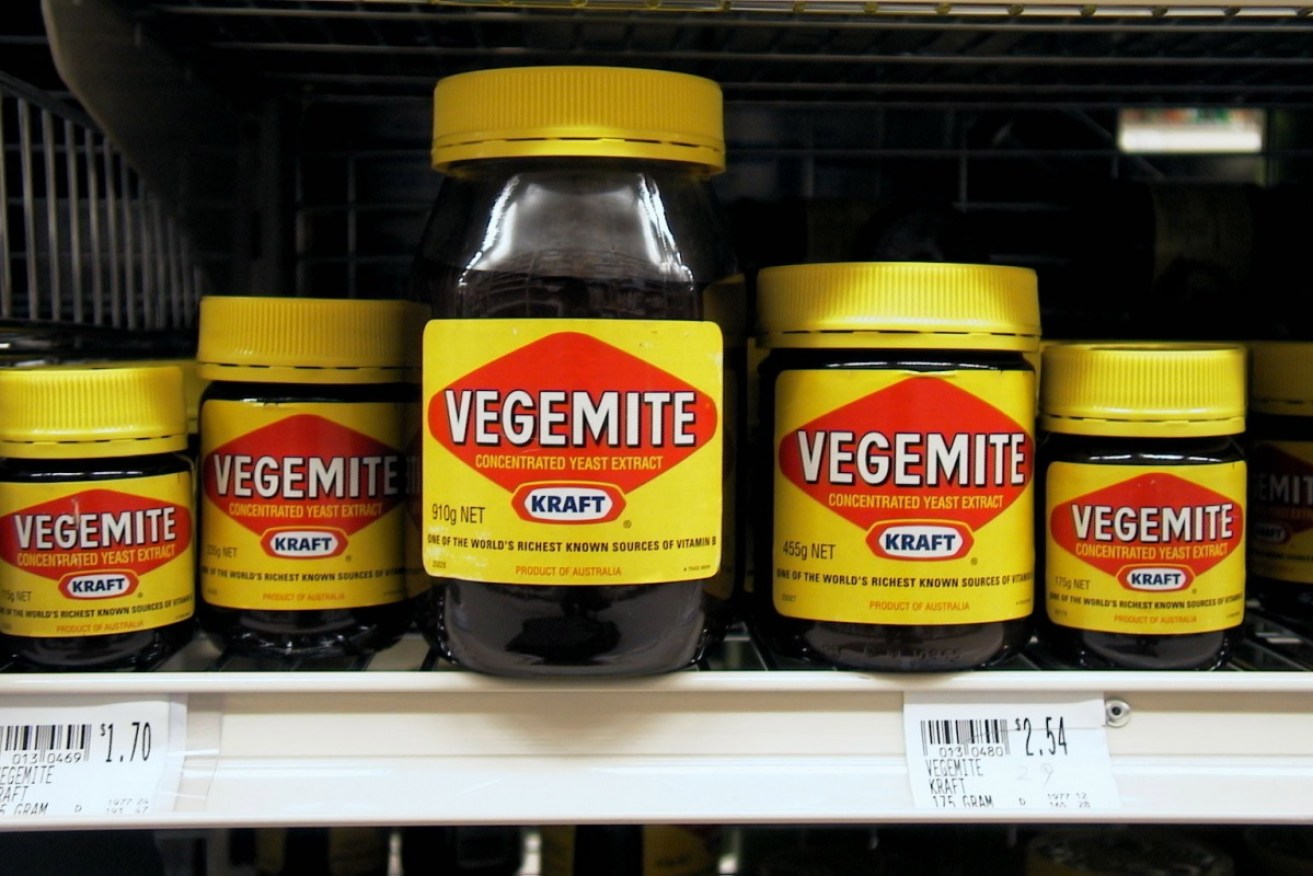We own our farms, but not our food

Turns out Aussie icon Vegemite isn't just good on toast, it looks great on walls as well. Photo: AAP
While official government data has extinguished public fears of a Chinese raid on Australia’s farm land, a leading agricultural expert warns that primary producers need to think about how they market food to the world.
For most of the 20th century, Australian food manufacturers showed they could build effective brands into lucrative national icons.
Teddy Bear biscuits, Vegemite, Fosters Lager, Freddo Frogs and Peter’s Drumstick are just a few of the retail monikers that are now institutionalised in Australian culture.
Today they are all foreign-owned.
Before the 1990s, Australians were able to reap rich returns from exporting some of these food brands and hundreds of others to the world.
In the opening decades of the 20th century, Australian food producers were also able to establish new export markets by developing special brands tailored to consumers in Asia and Europe.
They included ‘Hercules’ lamb marketed to British consumers and ‘Red Feather’ canned cheese sold in Japan.
Today, however, Australia’s profile in the world food market is mostly as a supplier of bulk commodities – beef, mutton, grains and fruit – that other countries increasingly re-export to Australian consumers as frozen dinners or preserved delicacies.
According to Mick Keogh, executive director of the Australian Farm Institute, Australia is among the least effective marketers of food products in the world.

The AFI’s Mick Keogh say we are among the worst marketers of food products in the world. Photo: ABC
While countries such as New Zealand and Canada have built global food companies through careful development of brands and distribution networks, Australia is increasingly focused on selling un-branded food commodities via bulk contracts.
Mr Keogh believes this is a big weakness of the Australian economy that could result in the local economy missing out on jobs and profits.
“If you’re supplying only commodities you’re subject to the raw laws of supply and demand in global markets,” he said.
“The strategic advantage rests in the hands of those food producing companies who own globally recognised brands.”
Reaping the benefits of the global food boom?
Australia is already losing its position in agricultural export markets.
A recent study by the AFI found that the value of global agricultural trade grew by 7 per cent per annum from 1996 to 1914, but Australian food exports increased by only 5 per cent during that time.
The research indicates that countries with investments in global retail brands were more likely to grow the value of their exports better than nations relying on commodity sales.
For Mr Keogh, the level of foreign ownership in the food sector is not necessarily a cause for concern, but our inability to innovate is.
He said state and federal governments need to take some of the blame for Australia’s weak position in the global food supply chain.
“When Australian trade delegations from each of the states go overseas they usually bag each other to trading partners.”
AFI executive director Mick Keogh
“This is very frustrating for people in the industry because other countries like Canada and New Zealand are marketing their food output to the world in a more integrated way.
“These countries have learnt that the only way you can get a premium for food commodities is through branding – Canada, New Zealand and Denmark have been good at doing that.”
The Farm Institute, an independent research think tank, is now agitating for federal and state governments to develop a national marketing strategy for Australian food commodities.
The SunRice secret
The failure of the Australian food industry to pay attention to marketing could come at a great cost to the nation.
As the world’s population increases and the effects of climate change reduce the stock of arable land on the planet, food prices are expected to soar.
But, to maximise the benefits likely to flow from this emerging trend, local food producers need to invest in branded products.
There are a few locally owned companies that are making good fist of it on the world stage.

Ricegrowers Ltd is one of Australia’s global marketing success stories.
Ricegrowers Ltd, the owner of the SunRice and Mahatma rice brands, now generates annual sales of more than $1 billion marketing its food products across the world.
From its global headquarters in Leeton, NSW, the company manages a global workforce of 2000 employees, including major operations in California, the Middle East and throughout Asia.
Another local success story is the Tasmanian-based infant formula maker, Bellamy’s Organic, which has seen its share price increase tenfold since September 2014.
Bellamy’s gained a foothold in the Chinese market in 2008 when a company part owned by New Zealand’s Fonterra revealed its infant formulas were contaminated with melamine.
The tragedy, which resulted in more than 50,000 Chinese babies requiring hospital attention, helped to build public trust in Bellamy’s products.
In the last year Bellamy’s has increased its net profit by more than 300 per cent to $38.3 million.








